Establishing Youth-Centered Agricultural Education on Local Farms
What was the initiative?
The focus of Sophia’s Pathy initiative was to expand the role that farms play as community hubs by working directly with farmers to develop educational programming within their local context. Local farms feed, employ, and support rural communities – Sophia’s project aimed to show that they also teach, engage, and inspire. This initiative aimed to engage community and connect them to the farm landscape. Sophia worked alongside her community partner to build the programming Bullock Lake Farm on Salt Spring Island, British Colombia. By the end of Sophia’s Fellowship year, the program roster had grown to include field trips, art workshops, book circles, summer camps, and after school programs. Each program was developed and delivered in collaboration across disciplines and sectors with other community members and local organizations. Finally, Sophia and her community partner registered the initiative as a not-for-profit society, Neighbourhood Farm Schools, enabling those involved to continue this work and support the long-term sustainability of this initiative.
What was the community connection?
Sophia was first introduced to Bullock Lake Farm and the Salt Spring Island community as a farm intern in 2019. She later returned to the farm to work for two more seasons and eventually took on the role of Community Supported Agriculture manager. Throughout the seasons, her connection to this community flourished while working with fellow farmers and producing food for Salt Spring residents. The idea for farm-based learning programs had been a long-standing dream at Bullock Lake Farm. Sophia’s community partner, along with school representatives, local farmers and school garden coordinators, were previously unsuccessful in securing a grant to initiate a similar program. With the help and support of the Pathy Foundation and the local community, Sophia was able to dedicate a year to this initiative and help bring the vision of a comprehensive and sustainable farm school program to life.
How was it innovative?
Neighbourhood Farm School’s commitment to collaboration encouraged diverse community engagement and unique cross-sector programs. From bridging farming and social-emotional learning, to developing place-based art workshops, Sophia and her team learned that the most unexpected collaborations enriched programs beyond their wildest expectations! The project focused on asset-based, community-led project development, encouraging farm school programming to grow according to available resources and local context and ensured that objectives were aligned the specific goals of the surrounding community. Some of these goals included long-term food security, sustainable employment, youth engagement and mental health, and collective climate action. By developing relationships between the agricultural and other community sectors, Sophia’s Pathy initiative emphasized capacity-building, access to knowledge and resources, and the development of more connected, resilient, supportive networks within the community. The programs delivered by Neighbourhood Farm Schools centered outdoor and experiential education to support and empower participants to explore, inquire, and learn in their own way.
What is Sophia doing now?
Neighbourhood Farm Schools continues to implement a complete roster of seasonal programming. They continually seek new collaborations and expand their offerings! Sophia currently works as a Senior Program Manager at The Starfish, a national charity organization that connects young environmental leaders through storytelling and community.


